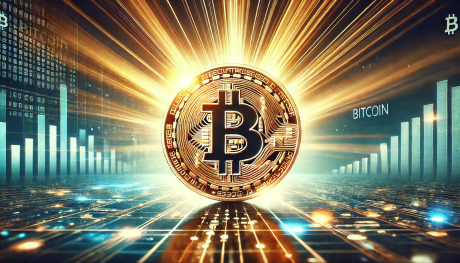The chatter on social media surrounding December 2013 comments by Boston University Professor Mark T. Williams (better known inside the community as ‘Professor Bitcorn’) is as loud as ever as we begin the second half of 2014.
Williams had taken to business publication Business Insider to voice his concerns over the digital currency, which was at the time just out of a massive bubble and an all-time high.
“I predict that Bitcoin will trade for under $10 a share by the first half of 2014, single digit pricing reflecting its option value as a pure commodity play,” he wrote in a piece entitled FINANCE PROFESSOR: Bitcoin Will Crash To $10 By Mid-2014.
Yet here we are, smack-dab in the middle of the year, and bitcoin isn’t trading anywhere near $10 per coin as Williams predicted. In fact, the price at the Bitstamp exchange is over eight percent up in the past three days, hovering over $640 at the time of this writing.
Perhaps with the off-the-mark prediction we might see some level of a prediction change from Williams? Not exactly.
I caught up with Williams [who’s presently in Istanbul] on Tuesday evening to find out just where he stands on the subject. As it were, Williams told me his “concerns over bitcoin remain,” not surprisingly.
“In April I provided a 30 page congressional testimony listing my various risk concerns,” the professor pointed out (you can find it here or embedded below). “Bitcoin is in a hyper bubble and will implode.”
4-2-2014 Williams Final Testimony
In that testimony, Williams reaffirmed his concerns with the digital currency, outlining what he called “unaddressed” risks on a number of different fronts.
“Bitcoin is in a hyper bubble and will implode,” Williams told me. “Since my prediction in 2013 Bitcoin has dropped by 50 percent. In February during the flash crash a trade of 6,000 coins momentarily pushed the price down by over 80 percent to a low of $102. Bitcoin is extremely volatile. It is 7 times riskier than gold, 8 times riskier than S&P 500 and 15 times riskier than the US Dollar.”
During our exchange, the Professor also commented on this past Friday’s Marshals auction, which saw the sale of over 29,000 bitcoins seized from the illicit Silk Road marketplace in late 2013.
“The market is also thinly traded and this is why the U.S. Marshals Service held a private auction instead of selling on a public exchange such as [BTC-e]. If the government had dumped over 29,000 e-coins on the public market, prices would have plummeted,” he said.
Meanwhile, on social media, the bitcoin community has taken to make light of Williams’ [so far] inaccurate prediction. From Williams’ prospective, however, the bottom line is clear.
“The Bitcoin market remains unhealthy and extremely hazardous to investor financial health,” he concluded.























I agree
With what?
One random professor, one random and erroneous prediction and yet you continue to write articles regarding him and requesting his further opinions? Why?
Corn is big business in the states.
He is not even a professor, to start with. Just a lecturer.
For something to be 15x riskier than the US dollar, it has to collapse with 1500% certainty.
I am sorry, prof. Williams, I am amazed and taken aback by your unsubstantiated analysis. This is not worthy of a documentation done by a highly accredited professor.
Yes, bitcoin has risks, but the once you refer to are, to say the least, not at all relevant.
“The value of bitcoin can drop to 0.” This is an argument from your side, really. EVERY stock you can trade on the stock exchanges has this risk, other large currencies have the same risk (see Argentina). Just because no company states this in their prospectus or in their annual report, does not make that risk go away. I just say ENRON. It is only fair of Coinbase to mention that disclaimer, while other companies do not write this explicitly.
“Despite the dramatic rise in 2013, prices have not been a one-way space rocket to the moon.” Really. Why does this constitute as a risk? To give you a recent example. ASOS, a well known online retailer, has lost about 70% of its market cap in the last 3 months. Other investments have done the same. Do we now stop people from buying ASOS stock, just because the stock price did not go to the moon?
“Presently the group of Bitcoin users is minuscule relative to the U.S. population (1 million out of 317 million).” 5 years ago the number of Facebook users was minuscule relative to the US population. Today Facebook has more than 1.3 billion users. When Apple first launched their iPhone its major competitor NOKIA laughed at the low sales numbers, because they were minuscule. We all know what happened after that. That is the way innovation works. To ridicule innovation because of minuscule acceptance is short sighted and even dangerous.
I could go on and on with your evidence. Although you have been working with bitcoin since 2011 you do not seem to be able to separate the real risks (medium and long term) from hyped arguments. You also do not address any of the incredible advantages that the technology can bring to governments and society.
Particularly the United States has always benefited the most and capitalized the most from technological advances. It is part of its younger history to look at the advantages of innovation and not at the disadvantages.
The volatility of bitcoin is also very normal in the sight of its early stage and with a low level of usage. We all should rather promote bitcoin to make it a widely accepted and used method of transferring money and value. This will be the best way to reduce volatility in the medium term.
You might be an expert on financial systems, but when it comes to bitoin, please do more research before considering to speak on the topic.
Jan, good points, but why stop there?
Who else here is old enough to remember when the group of Internet users was minuscule relative to the US population? How many 19th Century cowboys had mobile telephones? What was Aristotle’s driver licence number?
Charles, fully agree. I could have gone on and on with this. Not only with this argument, but mostly all. I am shocked about the arguments stated in the document. Close to lobby-ism for my taste.
BVIIXVII
So I guess being a professor doesn’t necessarily mean you’re educated.
Who’da thought.
It is not unreasonable to feel strongly that Bitcoin value will sink. This is not bad for Bitcoin – this is in fact good for Bitcoin – in some ways negative sentiment and publicity of said can be productive in some of the same ways short sellers bring value to conventional markets.
Williams opinions stirs the community and spurs dialogue, as we are doing right now. Dialogue is the glue that holds the community together.
BIGbtc.ca Bitcoin Integration Group – Toronto, Canada
True, to bring this topic into the media, and subsequently on the radar of the broad public, such bold statements are probably a good tool. In that respect we would have to thank Prof. Williams for actually helping bitcoin to enter the larger public domain. 🙂
My wager still stands.
http://consciousentrepreneurship.org/2014/07/open-challenge-to-mark-williams/
If one has no skin in the game, then it’s just economics.
My prediction: in the second half of 2014 bitcorn will still be a troll
Why is this guy getting any ink? This man is a joke.
Among the most poorly-written and technically ignorant analyses I’ve come across at the doctorate level. This paper represents a complete and utter failure unworthy of the bytes it occupies in my cache. I nearly stopped reading at his pathetic, childlike description of how “blocks of e-coins” are mined, which entirely ignored the actual nature and function of blocks in the blockchain protocol. Let this serve as a prime example of why economists alone, without the technical backing of engineers and scientists, are utterly incompetent at determining the value of technology and are economically less valuable at evaluating disruptive technologies than the lambs slaughtered to print their diplomas.
I award you zero points and may God have mercy on your soul.